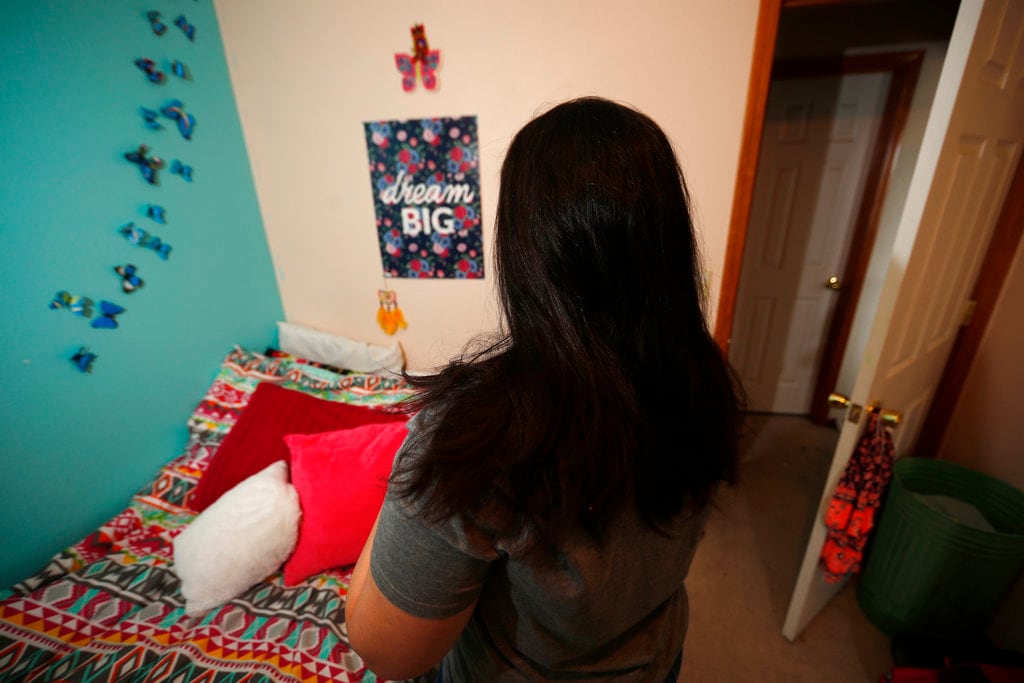The Senate committee that oversees the U.S. military ordered an independent investigation of how the Defense Department handles sexual violence among children on bases as part of legislation that would overhaul how the Pentagon must respond when assaults are reported.
Military officials had quietly resisted an outside review of problems documented in an Associated Press investigation, which showed broad failures of justice when military kids sexually assault each other on bases worldwide.
As part of annual legislation that sets Pentagon policy priorities, the Senate Armed Services Committee included bipartisan proposals to fix juvenile justice on military installations and protect student victims at Pentagon-run schools.
RELATED

The committee also directed the Defense Department’s independent watchdog agency to investigate.
Sens. John McCain and Jack Reed, the committee’s top Republican and Democrat, had asked Defense Secretary James Mattis in March to task his department’s inspector general to do a “comprehensive assessment” of policies.
Instead, Mattis’ office decided the Pentagon would lead the assessment itself.
Explaining that decision, Maj. Carla Gleason said Friday: “We have different investigative tools at our disposal and we choose the appropriate tool for the situation.”
But Gordon Heddell, the Pentagon inspector general from 2008 through 2011, said he could not recall an instance when a defense secretary declined to pass along a committee request.
“Smart, with-it secretaries, they cooperated,” Heddell said, because it was “better to have a black eye than run the risk of being accused of obstruction.”
Under the National Defense Authorization Act, which the Armed Services Committee passed Wednesday, the inspector general’s report is due Dec. 1. Bruce Anderson, spokesman for the Pentagon’s inspector general, said Friday the office would review the legislation and “take appropriate action.”
The fact that senators had to insist on an independent investigation was the latest example of the military seeking to limit congressional scrutiny. Pentagon officials who have briefed members of Congress and their staffs made clear they wanted to handle the issue without new legislation.
The inspector general’s work will be the second outside investigation announced since the AP identified nearly 700 cases of child-on-child sexual assault on military bases worldwide in the last 10 years. Congress’ own watchdog agency, the Government Accountability Office, will review how the Pentagon’s school system deals with sexual assault reports among its roughly 70,000 students, as well as how military investigators and lawyers seek justice for cases that can only be prosecuted in civilian courts.
AP found that cases of child-on-child sexual assault fell into a dead zone of justice, because military law doesn’t apply to civilians and the federal authorities who are empowered to take them on most bases rarely do. Many cases went unprosecuted, even when an attacker had confessed. That lack of justice left victims little support and offenders little consequence.
A separate Senate bill introduced this week would require the Defense Department to transfer legal jurisdiction over juvenile crimes on its domestic bases to local authorities, who are more equipped and accustomed to handling them, and to compile and share annual data on the cases.
The Armed Services Committee’s bill includes new protections for students sexually assaulted at Pentagon-run schools.
Under the legislation, a law known as Title IX that bans gender discrimination in federally funded schools would also apply to students in the Department of Defense Education Activity, the Pentagon school system.
Courts have ruled that Title IX covers students sexually assaulted by other students on campus. That has allowed students to request investigations by the U.S. Education Department and sue for monetary damages if their school districts mishandled reports of sexual violence — options that have been unavailable to students in Pentagon-run schools.
The committee’s legislation would also require the Pentagon’s school system to create new policies to combat sexual harassment and violence among students.
Laurie Kellman contributed from Washington. Dunklin reported from Dallas, Pritchard from Los Angeles.




